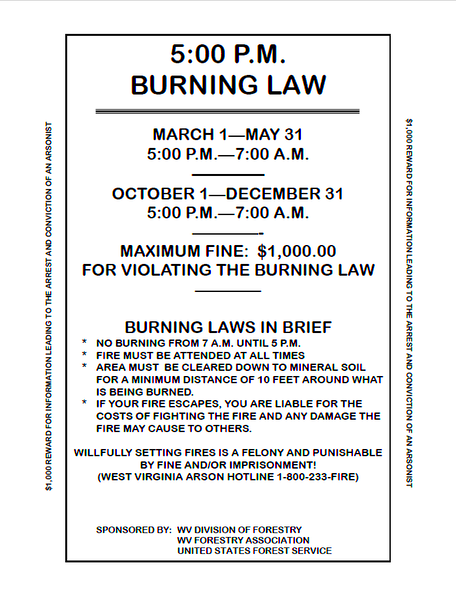Understanding Burn Law and Legal Responsibilities
Burn law focuses on the legal aspects surrounding burn injuries. It includes understanding how burns happen, the responsibilities of those involved, and what victims can do to seek justice. Burns can result from various situations, such as accidents at home, workplace incidents, or product defects. Knowing the legal framework can help victims navigate their rights and responsibilities effectively.
Types of Burns and Their Legal Implications
Burns can be classified into several categories, each with distinct legal implications. Here are the main types:
- First-Degree Burns: Affect only the outer layer of skin, causing redness and minor pain. Legal claims may be less severe.
- Second-Degree Burns: Involve deeper skin layers, resulting in blisters and significant pain. These can lead to more serious legal considerations, especially if caused by negligence.
- Third-Degree Burns: Extend through the skin into underlying tissues. They may require extensive medical treatment and can lead to substantial compensation claims.
- Chemical Burns: Caused by contact with harmful substances. The responsible party may face serious liability.
- Electrical Burns: Result from electrical shock, potentially causing severe internal injuries. Legal action may focus on negligence in safety standards.
Each type of burn carries different legal ramifications based on severity, treatment needs, and how the injury occurred. Understanding these implications is crucial for victims pursuing claims.
Negligence in Burn Cases
Negligence plays a significant role in burn law. To prove negligence, a victim must show that another party failed to act with reasonable care, resulting in injury. Here are key points to consider:
- Duty of Care: The responsible party had an obligation to ensure safety.
- Breach of Duty: The party did not meet that obligation, leading to a hazardous situation.
- Direct Cause: The negligence directly resulted in the burn injury.
- Damages: The victim suffered physical, emotional, or financial harm due to the injury.
Common scenarios of negligence in burn cases include:
- Improper maintenance of electrical systems
- Failure to provide safety equipment
- Hazardous conditions in public or private spaces
- Defective products that cause burns
If negligence is proven, victims may be entitled to compensation for medical expenses, pain and suffering, and lost wages. It’s essential to consult a legal professional for guidance in these cases.
Liability of Property Owners for Burn Injuries
Property owners have a legal obligation to ensure their premises are safe for visitors. If a burn injury occurs due to unsafe conditions, the owner may be held liable. This responsibility extends to various types of properties, including homes, commercial spaces, and public areas. Let’s look at what this liability entails:
- Duty to Maintain: Property owners must regularly inspect and maintain their properties to eliminate hazards. This includes ensuring that electrical systems, heating equipment, and cooking appliances are safe.
- Warning of Hazards: If there are unavoidable dangers, owners must warn visitors. For example, if a property has a hot surface or open flame, signs should be clearly posted.
- Proper Training: Staff should be trained in safety procedures, particularly in places like restaurants or factories where burns are more likely to occur.
If a property owner fails to meet these responsibilities, they may be liable for any resulting burn injuries. Victims can seek compensation through legal channels, emphasizing the importance of holding property owners accountable for safety.
Burn Injuries Caused by Product Defects
Defective products can lead to severe burn injuries. When a product is flawed, whether due to design, manufacturing, or labeling issues, the manufacturer, distributor, or retailer may be liable. Here’s how these defects can cause burns:
- Design Defects: Products that are inherently unsafe due to poor design can result in injuries. For example, a faulty hair straightener that overheats.
- Manufacturing Defects: Even well-designed products can become dangerous if not produced correctly. A misassembled electrical appliance may lead to electric shocks or burns.
- Failure to Warn: Products must come with adequate warnings about potential dangers. If a product lacks clear instructions or safety warnings, the company could face liability.
Victims of burn injuries caused by product defects can pursue legal claims for damages. It’s vital to document the injury and retain any product packaging and receipts to strengthen a case.
Compensation for Burn Victims
Burn victims often face significant challenges, including medical costs, emotional distress, and lost wages. Fortunately, compensation may be available to help alleviate some of these burdens. Here’s what victims should know about potential compensation:
- Medical Expenses: This includes hospital bills, rehabilitation costs, and ongoing treatment related to the burn injury.
- Pain and Suffering: Victims may receive compensation for physical pain and emotional distress caused by the injury.
- Lost Wages: If the burn injury prevents a victim from working, they may claim compensation for lost income during recovery.
- Future Damages: In some cases, victims may need long-term care, and compensation can cover these future medical costs.
The amount of compensation depends on various factors, including the severity of the injury, the circumstances surrounding it, and the impact on the victim’s life. Consulting a legal professional can provide guidance on pursuing these claims effectively.
Legal Steps to Take After a Burn Injury
Experiencing a burn injury can be overwhelming, but knowing the legal steps to take can help you secure your rights. Here’s a clear guide on what to do immediately following a burn injury:
- Seek Medical Attention: Your health is the top priority. Visit a doctor or hospital as soon as possible to treat your burns and get the necessary documentation of your injuries.
- Document Everything: Take photos of your injuries, the scene of the accident, and any unsafe conditions. This evidence can be crucial in legal proceedings.
- Gather Witness Information: If there were witnesses, get their contact details. Their statements can support your case.
- Report the Incident: If the burn occurred at a workplace or public place, report the incident to the appropriate authority. Make sure to get a copy of the incident report.
- Consult a Lawyer: Reach out to a personal injury lawyer experienced in burn cases. They can provide guidance and help you understand your rights and options.
- Keep Records: Maintain all documents related to your injury, including medical records, bills, and correspondence with insurance companies.
Taking these steps can help protect your rights and prepare you for potential legal action, ensuring you receive the compensation you deserve.
Common Questions About Burn Law
Many people have questions about burn law, especially after experiencing an injury. Here are some frequently asked questions and their answers:
- What types of burns are eligible for legal claims? Any burn resulting from negligence, defective products, or unsafe premises can be grounds for a claim.
- How do I prove negligence in a burn case? You must demonstrate that the responsible party had a duty of care, breached that duty, and that this breach directly caused your injury.
- What compensation can I expect? Compensation varies based on the severity of the injury, medical expenses, and lost wages. A legal professional can provide a more accurate estimate.
- Is there a time limit to file a claim? Yes, each state has a statute of limitations, which can range from one to several years. It’s essential to act quickly to preserve your rights.
- Do I need a lawyer for a burn injury claim? While you can file a claim without a lawyer, having legal representation can significantly increase your chances of receiving fair compensation.
Understanding these common questions can help you feel more confident as you navigate the legal aspects of burn injuries.
Conclusion on Understanding Burn Law
Burn law encompasses many critical areas, from understanding types of burns to knowing your rights as a victim. Whether the burn occurs due to negligence, defective products, or unsafe premises, it’s vital to recognize the potential legal implications. Taking the right legal steps after a burn injury can significantly impact your recovery and compensation.
It’s essential to stay informed and proactive. By understanding your legal rights and responsibilities, you can navigate the complexities of burn law with confidence. Don’t hesitate to consult with a qualified legal professional to ensure your rights are protected and to help you seek the compensation you deserve. Remember, you’re not alone in this journey; support and resources are available to help you through.


